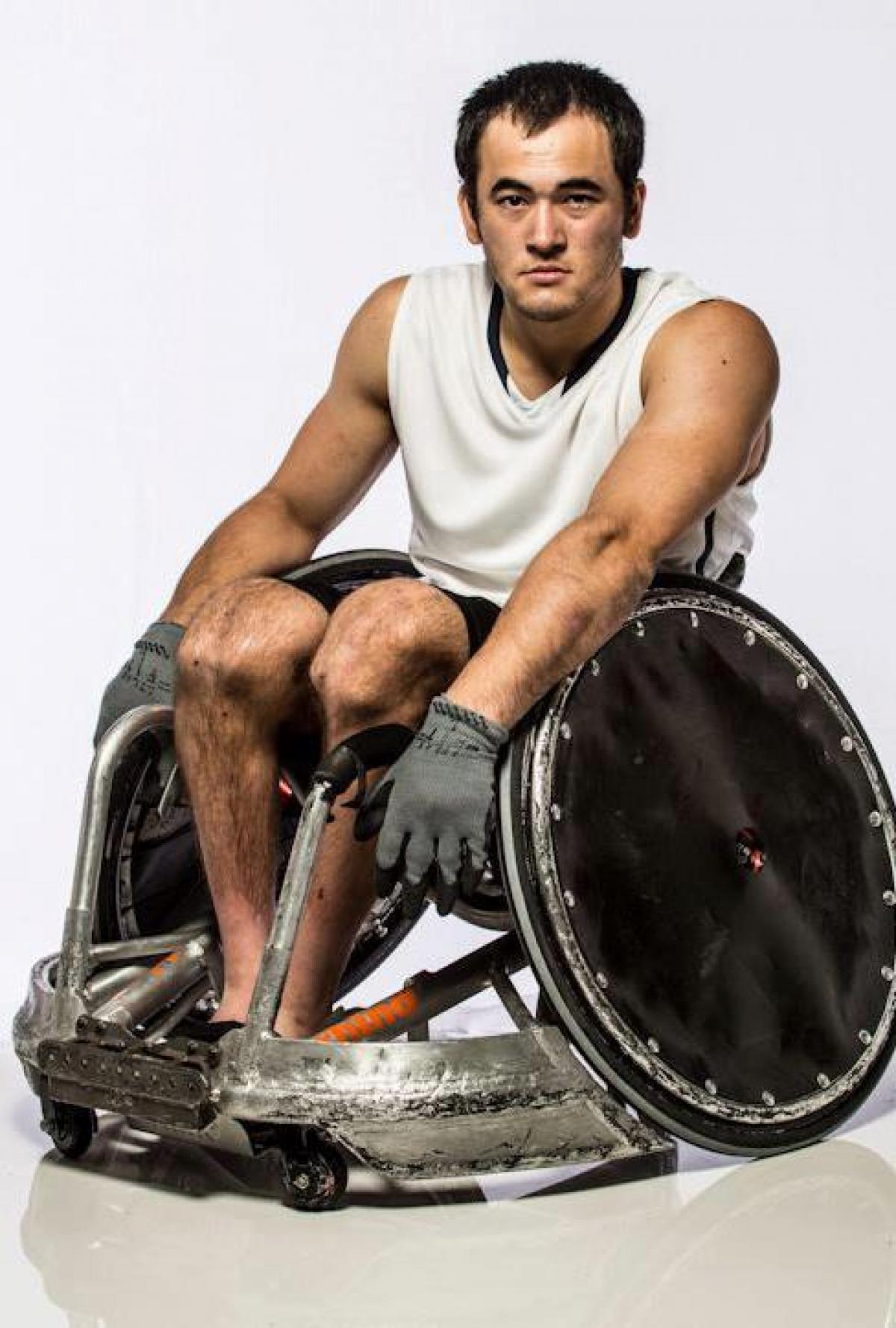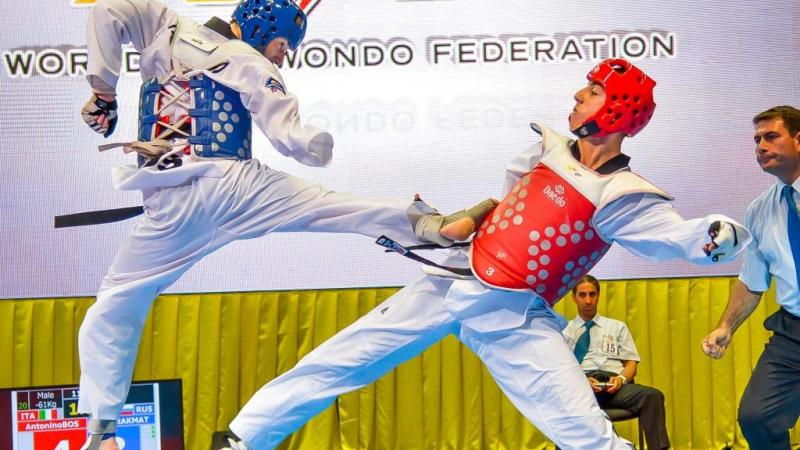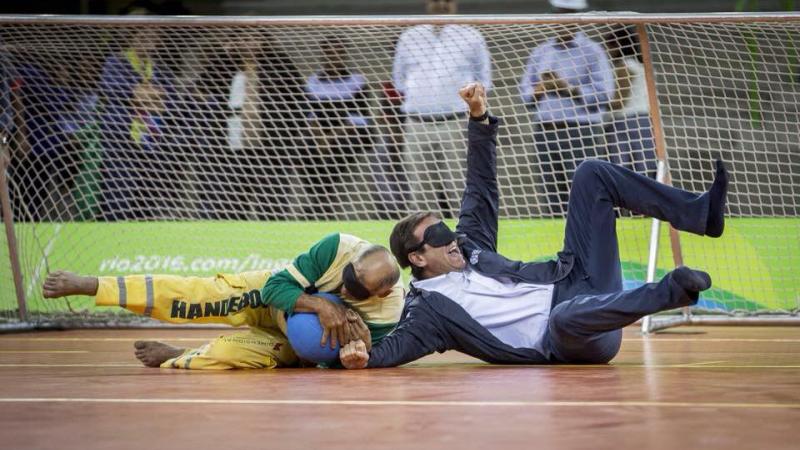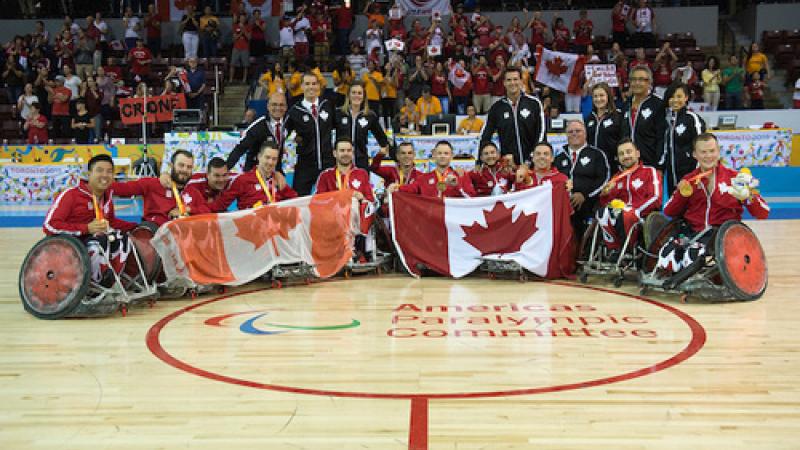Chuck Aoki: Having a disability still viewed negatively
But watching para-athletes compete really does change those views, writes the US wheelchair rugby. 17 Sep 2015
Chuck Aoki
I have recently returned from the Toronto 2015 Parapan American Games in Toronto, Canada.
The Games themselves were magnificent, and Toronto did a wonderful job putting them on. Personally, the Games could have gone better. But this is not the place to dwell on my team’s loss in the finals.
For my September blog, I am interested in talking about something I have observed lately in regards to sport for people with disabilities. It is undeniable that the performance of para-athletes has improved in the last decade or so, often dramatically. Sprinters, for example, are running times that most able-bodied runners could only hope to run. Athletes in sports such as powerlifting have always performed above and beyond that which an average able-bodied person could. Elite para-athletes are reaching a place of being looked up to by able-bodied and non-able- bodied people alike, and our achievements are becoming equally desirable. In short, our status is starting to soar.
As we achieve this status however, there is a strong pushback by society. It is not a blatant or overt pushback. It is more subtle, but that does not diminish its power.
Despite all the gains of para-sport and para-athletes, it remains true that having a disability is still generally considered a bad thing. Consider how many times you have heard someone refer to a disability in casual conversation as negative or something to be avoided.
"You could have lost your leg! Yeah, thank God that did not happen!"
"What are you, blind?"
The latter phrase is popular at almost all sporting events, usually directed at officials or referees. There is also often a fear surrounding disability as well. This leads many able-bodied people, at least in my opinion, to avoid seeing or talking about disability in whatever capacity they experience it.
The dual feelings of fear and negativity that surround disability are common in the average able-bodied person. And I do not fault them for having these feelings. Both, fear in particular, stem from the unknown. Living with a disability is far out of the consciousness of able-bodied people that it cannot be imagined. Until this changes, it seems safe to say disability will remain foreign and feared.
We have two contrasting narratives: elite athletes with athletic abilities and fitness that are things to be desired, and people with disabilities whose perceived lack of ability make able-bodied people feel pity, fear and negativity. But here is the good news: the first narrative is winning.
Thousands of people, able-bodied and not, flock to see Paralympic sport. New stars are created every day. I think one story sums it up best, however.
My mum, who has known about adapted sport for nearly two decades, remarked to me after our final game in Toronto that when she watches me play, “I forget you use a wheelchair. Your athleticism, the court action, the competitive energy and passion, makes me forget that you are not going to get up out of your chair at the end of the game and walk away.”
Once Paralympic sport captures one's attention, it does not let go.

 Facebook
Facebook
 Instagram
Instagram
 Twitter
Twitter
 Youtube
Youtube
 TikTok
TikTok
 Newsletter Subscribe
Newsletter Subscribe







